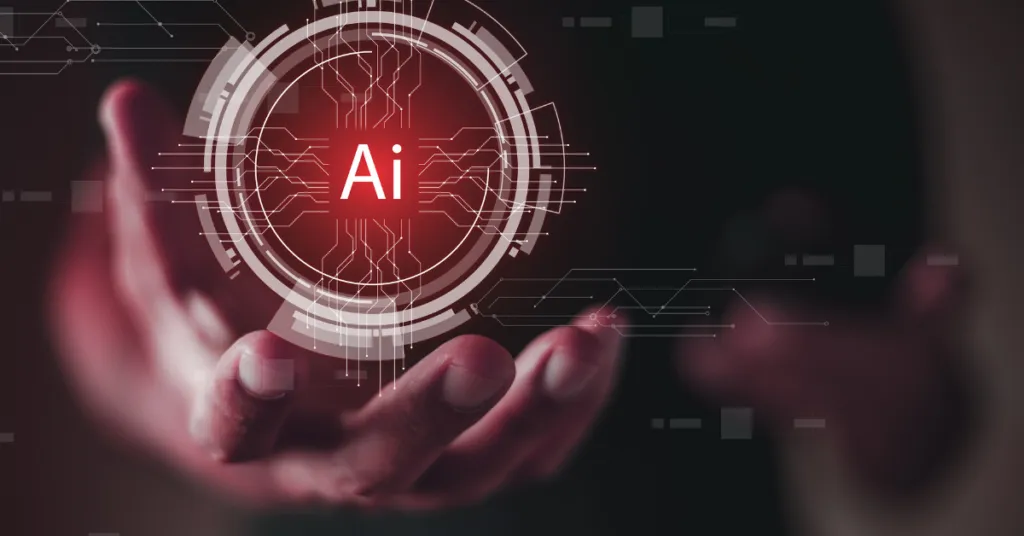10 Popular AI Applications in Real Life: A Comprehensive Guide

- 10 AI Applications in Real Life
AI applications in real life are revolutionizing our daily experiences, seamlessly integrating into various aspects of our lives. According to a report by Statista, with an expected annual growth rate of 17.3%, the market volume of AI is set to go up to $738.8 billion by 2030. This growth reflects AI’s expanding role in enhancing efficiency, personalization, and safety across different sectors. Therefore, AI applications in real life are not just technological advancements; they are reshaping our interactions with the world.
10 AI Applications in Real Life
1. AI in Matchmaking
AI matchmaking is a stellar example of AI applications in real life. Platforms like Tinder and Bumble utilize sophisticated AI algorithms to analyze intricate patterns in user preferences and behaviors. These forums, using AI matchmaking algorithms, allow for matches that are accurate and deeply resonant with individual tastes and preferences.
Moreover, these platforms employ AI for profile authentication, significantly enhancing user safety and reducing the risks of online dating fraud. Thus, AI applications in real life matchmaking scenarios streamline the process of finding compatible partners and ensure a safer and more authentic dating experience.
2. AI in Astrology
When it comes to astrology, AI applications are forging a groundbreaking synthesis of technology and ancient wisdom. Leading this innovative front are apps like Co-Star and The Pattern, which utilize AI’s predictive analytics to craft horoscopes that are not only remarkably precise but also profoundly personalized. By harnessing the power of AI, these astrology apps provide more accurate readings and enhance the user experience with intuitive interfaces and interactive features. These real-life AI astrology applications tap into our curiosity about the future, offering insights meticulously derived from planetary positions and astrological data, all tailored to individual astrological charts.
With the global astrology market projected to reach 19.13 billion by 2031, the impact of AI in this field is significant. This growth underscores the increasing demand for personalized astrological insights, a need that AI astrology is uniquely positioned to fulfill.
3. AI in Recruitment
AI in recruitment is revolutionizing the corporate world, marking a significant shift in hiring processes, with platforms like Ideal and HireVue leading the charge. By utilizing AI to automate critical aspects of recruitment, these platforms efficiently handle tasks such as resume screening and interview scheduling, which are traditionally time-consuming for recruiters. This automation allows recruiters to focus on more strategic aspects of their role, like engaging with candidates and making informed hiring decisions. Thus, it frees up valuable time and enhances the overall quality of hires.
Furthermore, AI in recruitment promotes a more objective and fair hiring process by eliminating human biases and fostering diversity and inclusivity in the workplace. Its ability to analyze vast amounts of data ensures the most suitable candidates are matched to the right roles based on their skills, experiences, and potential.
ALSO READ: Top 10 Best Practices and Insights to Prepare You for Industry 4.0
4. AI in E-Commerce
In e-commerce, where retail sales are projected to reach about $8.1 trillion by 2026, AI applications play a crucial role. Major online retailers like Amazon and Alibaba leverage AI for personalized product recommendations. This, in turn, significantly enhances the shopping experience. AI’s impact extends to inventory management, ensuring optimal stock levels and minimizing waste. Additionally, AI-driven chatbots, exemplified by eBay and Shopify, are revolutionizing customer service, offering instant and accurate responses to customer inquiries. Thus, such AI applications in real life streamline online shopping and tailor it to individual customer preferences.
5. AI in Education
The education sector manifests one of the primary examples of AI applications in real life. Educational platforms such as Coursera and Khan Academy employ AI to tailor learning experiences to individual student needs. This personalization improves engagement and allows educators to track student performance more effectively. Additionally, AI democratizes education by making it accessible to a broader audience. Moreover, tools like Grammarly and Duolingo are further examples of AI’s impact on education, providing personalized assistance and enhancing language learning experiences.
6. AI in Navigation
In today’s fast-paced world, AI applications in real life, especially in navigation, have become essential tools for millions. Navigation apps like Waze and Google Maps are prime examples of how AI transforms our travel. These apps use AI to analyze real-time traffic data, efficiently optimizing travel routes and saving valuable time for commuters. Such application of AI not only streamlines our journeys but also plays a significant role in reducing fuel consumption.
Furthermore, AI in navigation is pivotal in enhancing road safety. It alerts drivers to potential road hazards, traffic jams, and changing weather conditions, ensuring a safer driving experience. These AI-driven navigation tools also constantly learn and adapt, providing more accurate and reliable route suggestions. Therefore, real-life AI applications make our daily commutes smoother and significantly safer, impacting millions of lives positively.
ALSO READ: How to Tackle Algorithmic Bias: Top 4 Challenges and Solutions
7. AI in Health Care
In health care, AI applications emerge as game-changers. Tools like IBM Watson Health and Google DeepMind are transforming patient care through AI. These systems enable early disease detection by analyzing complex medical data. AI also tailors treatment plans to individual patient needs, improving outcomes. Furthermore, AI streamlines administrative tasks in hospitals, allowing medical staff to focus more on patient care.
8. AI in Marketing
In marketing, real-world AI applications are creating a paradigm shift. Platforms like Salesforce Einstein and Adobe Sensei use AI to analyze consumer behavior. This analysis enables the creation of targeted and personalized marketing campaigns, increasing customer engagement and sales. Additionally, AI helps generate content that resonates with the target audience, strengthening brand loyalty. Hence, AI boosts marketing effectiveness and forges deeper customer connections.
9. AI in Social Media
The use of AI significantly enhances user experience on social media platforms. Platforms like Instagram and X utilize AI to personalize user feeds, ensuring that content aligns with individual interests and preferences. These AI applications in real life not only boost user engagement but also keep content relevant and captivating. Moreover, AI plays a crucial role in content moderation, efficiently identifying and filtering inappropriate or harmful material. Thus, AI contributes to making social media platforms more engaging and safer.
10. AI in Customer Service
In the customer service sector, AI has altered how businesses interact with their clientele. Companies like Amazon and Zappos use AI-powered chatbots to provide instant, 24/7 customer support. AI enhances customer service efficiency and significantly improves customer satisfaction and loyalty. Furthermore, AI in customer service can personalize interactions based on customer history and preferences, making the service experience more tailored and effective. Therefore, using AI transforms customer service operations and builds more enduring relationships between businesses and their customers.
ALSO READ: 10 Best AI Tools to Increase Your Productivity in the Workplace
In conclusion, AI applications in real life play a transformative role across various industries. It profoundly impacts how we live, work, and interact. From enhancing personal experiences in matchmaking and astrology to revolutionizing recruitment and e-commerce, AI is setting new standards of efficiency and personalization. As the AI market grows, its integration into our daily lives is expected to deepen, promising a future where technology and human experiences are more intricately intertwined.
If you want to explore the domain of artificial intelligence and its impact on everyday life, consider joining Emeritus’s tailor-made artificial intelligence courses and machine learning courses and boost your career prospects.
Write to us at content@emeritus.org






